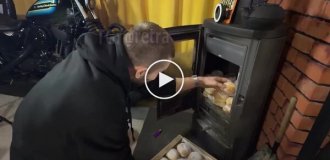How the thousand-year-old floating market of lotus traders is dying (10 photos)
The floating market of Kashmir is slowly dying, although it operated successfully for over a thousand years. Buyers still need it, it still makes money, albeit small, for traders, but the most valuable component of this market - the river itself - is coming to an end. 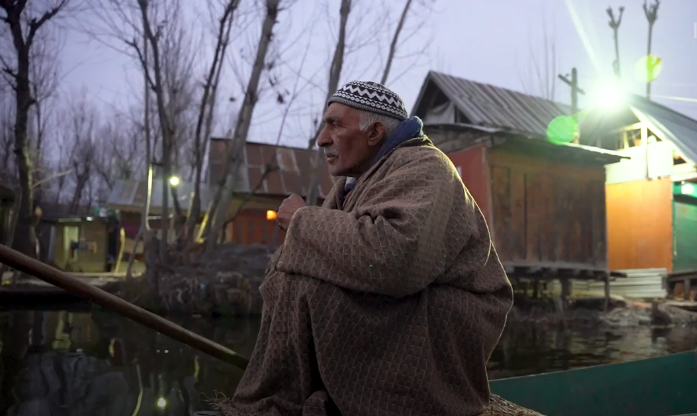
10 years ago there were 100 other traders here, now there are only a dozen left. Although they are all descendants of entire dynasties of water traders of Srinigar. 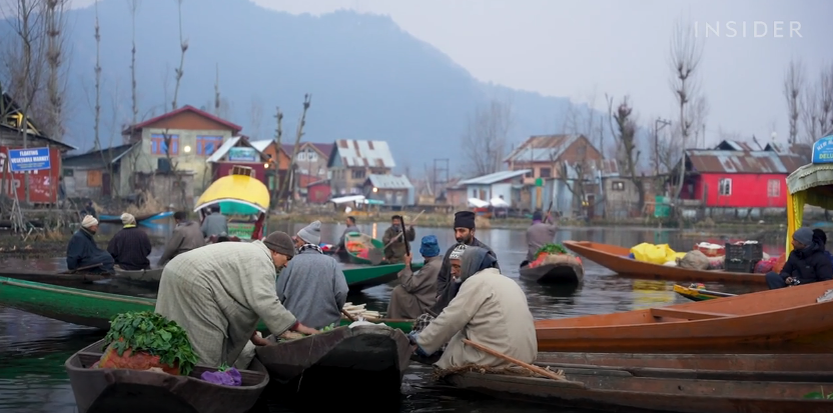
Only men trade, the region is Muslim
The Kashmir floating market has survived everything - huge floods, constant conflicts between India and Pakistan (Kashmir is a disputed territory between the two countries), separatist movements.
But he didn’t survive one thing – river pollution. It destroys the craft of floating merchants more than any squabbles between states. 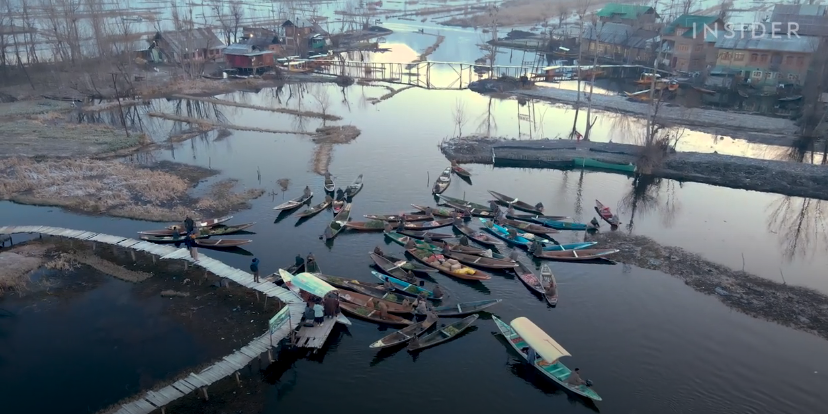
These are literally all the boats left on the floating market.
Traders say they used to be able to simply dip their hand into the water when they rowed their boat to the market to get a drink. Now the one who does this will definitely get sick.
Secret floating plots - what makes the market special?
Now almost all traders are well over 60 or even 70. But they still stubbornly rise with the first rays of sun at six in the morning. After praying, they go to the river, but not to the market. 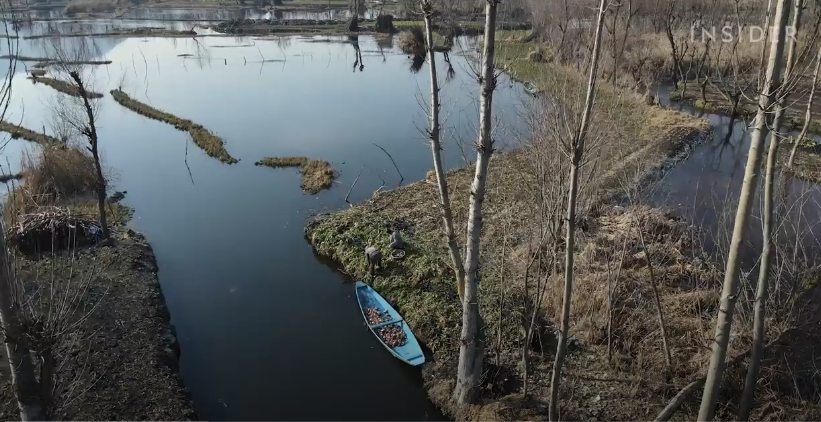
There are small islands of artificial beds in the riverbed.
And where only they can get on their boats - to floating islands with flower beds. It’s very convenient, you don’t have to talk about where your plot is, and none of the residents of the shore will find it or clean it out.
Such beds were left to them as a legacy by their fathers - most of them were made by human hands. This is silt raised from the bottom, transformed into floating islands. 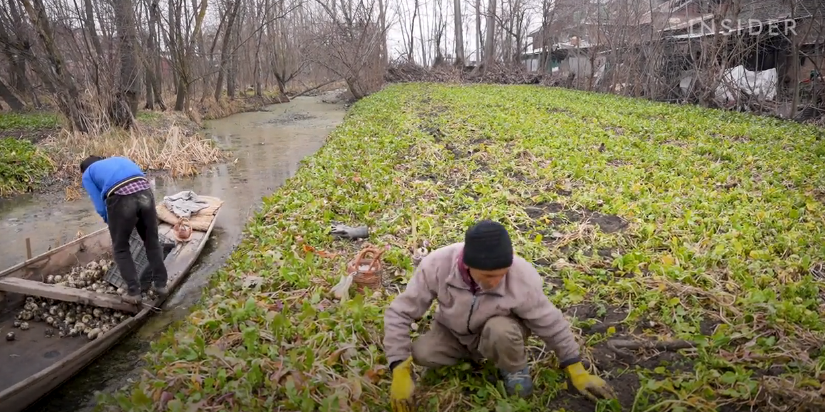
This is a field of turnips, you don’t really need to look after it, it grows on its own in moist soil
Such soil is nutritious enough to easily grow carrots, salads, cabbage, and turnips (which is a turnip). But the most expensive product on the market, which allows farmers to still stay afloat, is lotus root.
They lower the hooks into the dirty, muddy fashion and deftly snatch the roots from the bottom, just as their fathers and grandfathers trained them to do. The trouble is that few of their grandchildren decided to inherit this skill of collecting lotus root. 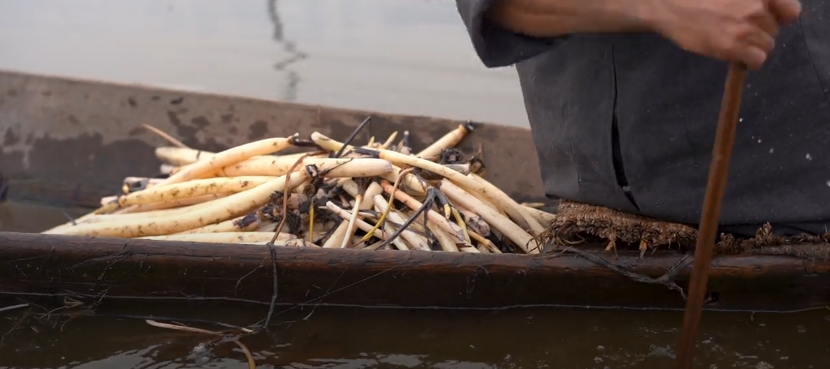
Here is the same white lotus root and hook
Kashmiris simply adore lotus root; not a single day can an ordinary Kashmiri go without it. And this is what makes the cuisine of this small region so unique. In other countries they also eat it, but nowhere do they make it the basis of the diet. 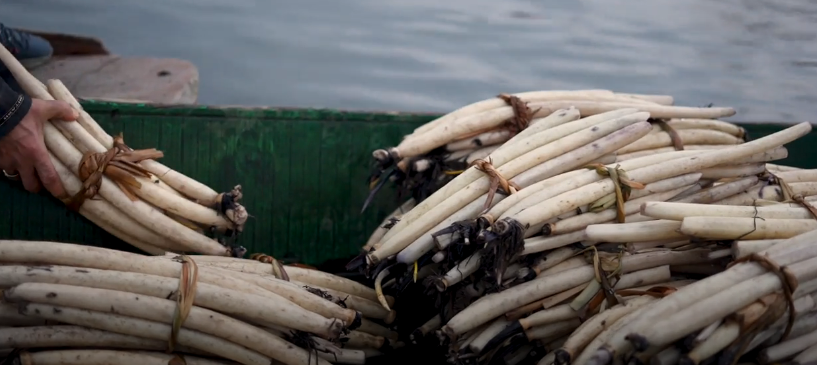
The taste of lotus root is quite watery, have you tried it?
Trading itself takes the least amount of time. The floating market usually sells out within two hours. Then the merchants leave, the lotus is bought by the owners of grocery stores and cafes from the city, sometimes competing with each other so as not to be left without the main thing they come to them for - the lotus.
If you put your hand in the river, you can no longer see your fingers...
The river feeds the 60,000 people who live along it. Previously, residents relied on fishing, but with pollution, there were fewer fish. 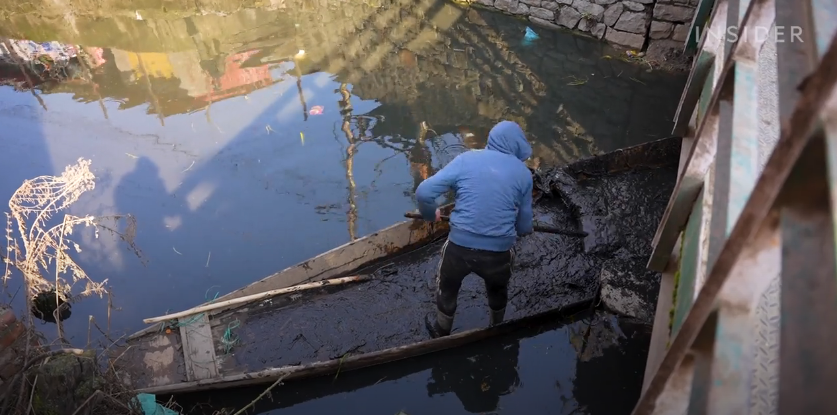
Black mud is scooped out of the riverbed with a shovel; it is oily and smells terrible.
44 million liters of waste are washed into the water from the city DAILY. Plus, there is garbage floating on the surface, which is dumped by the owners of expensive houseboats on the river.
Now the lucky ones are those who were the first to convert their boat into a palanquin for tourists. Yes, there are tourists here, albeit a few. Kashmir has rather poor buildings and infrastructure, which looks rather depressing for most travelers. Although in the 90s there was an incredible boom in tourism. 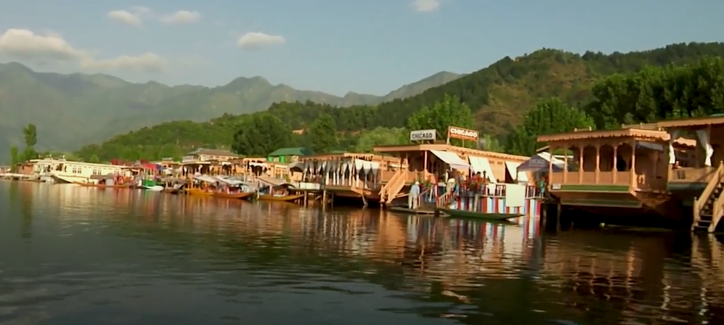
These are the most expensive floating houses on the river
Then another wave of conflict between India and Pakistan reduced tourism to almost zero, now people are returning, but there is no trace left of the former splendor of the water market.
We may now be living under the last generation of unique lotus horse traders in the floating market. They, like many other professions, will fade away before our lives. And it's a little sad. 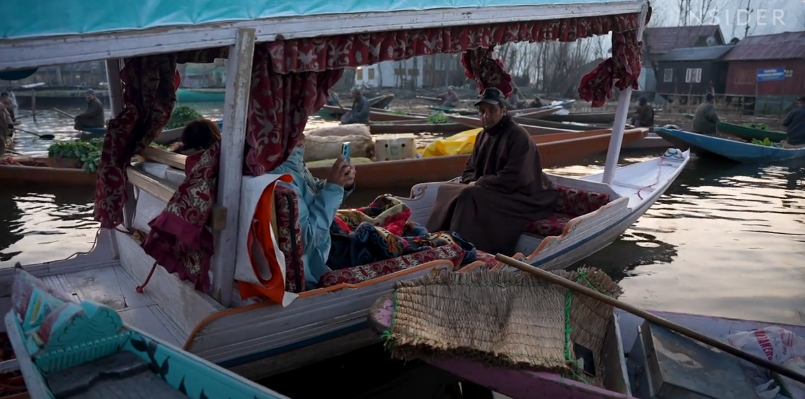
One of the rare tourist boats with a palanquin




